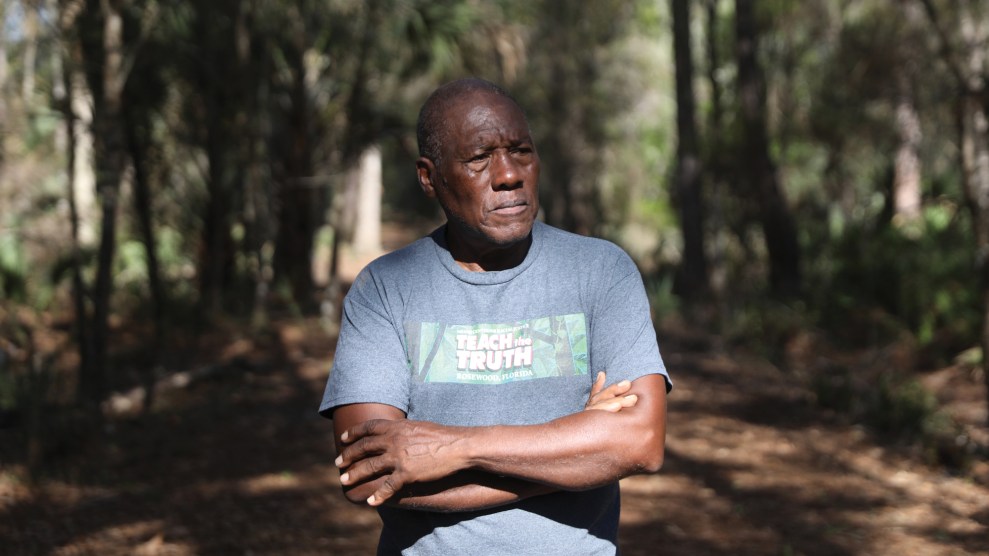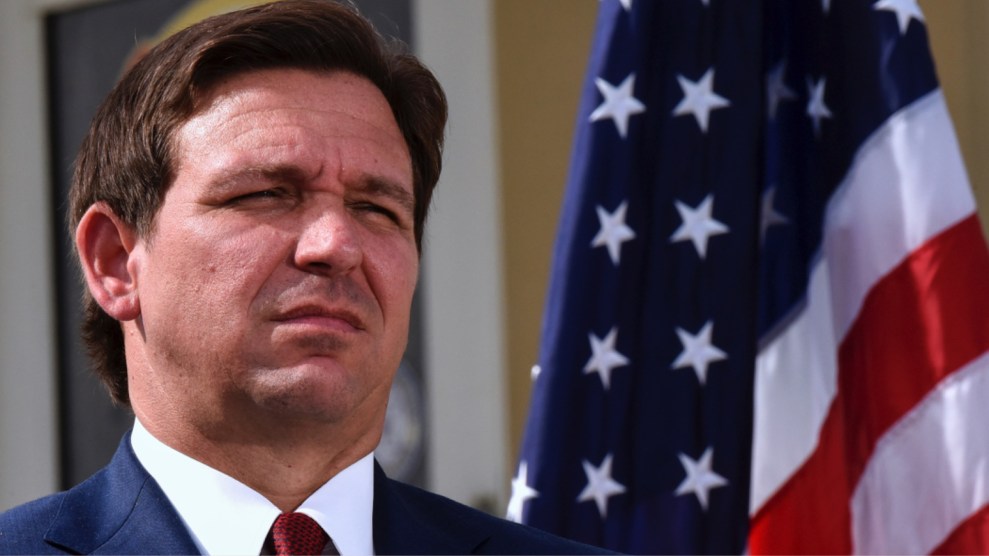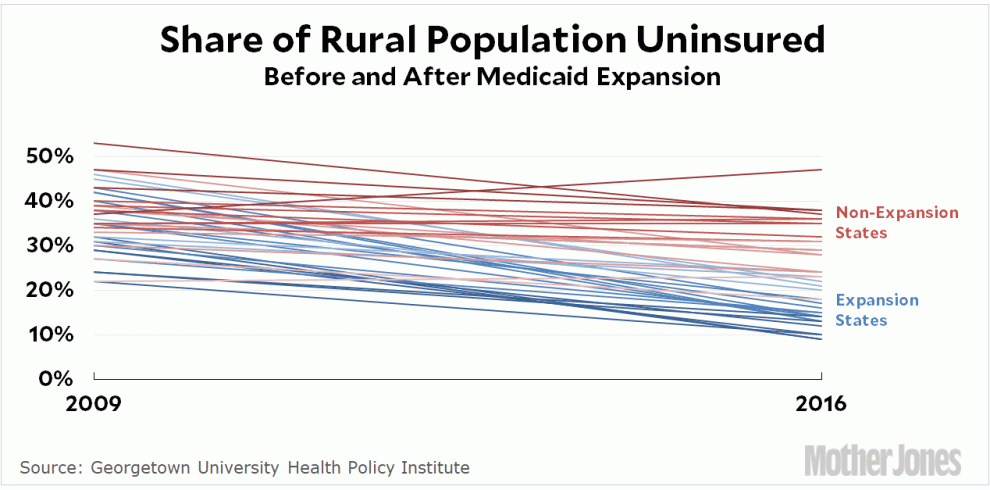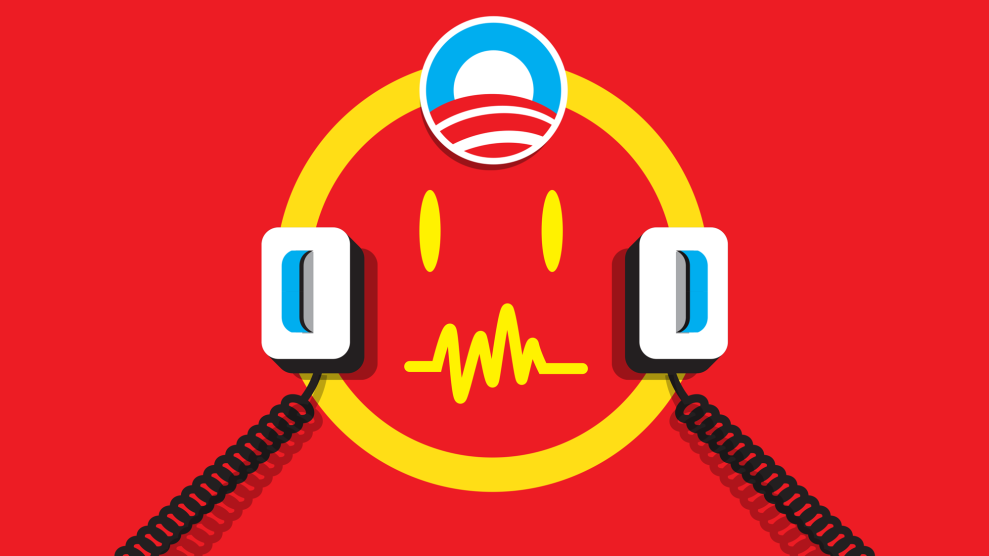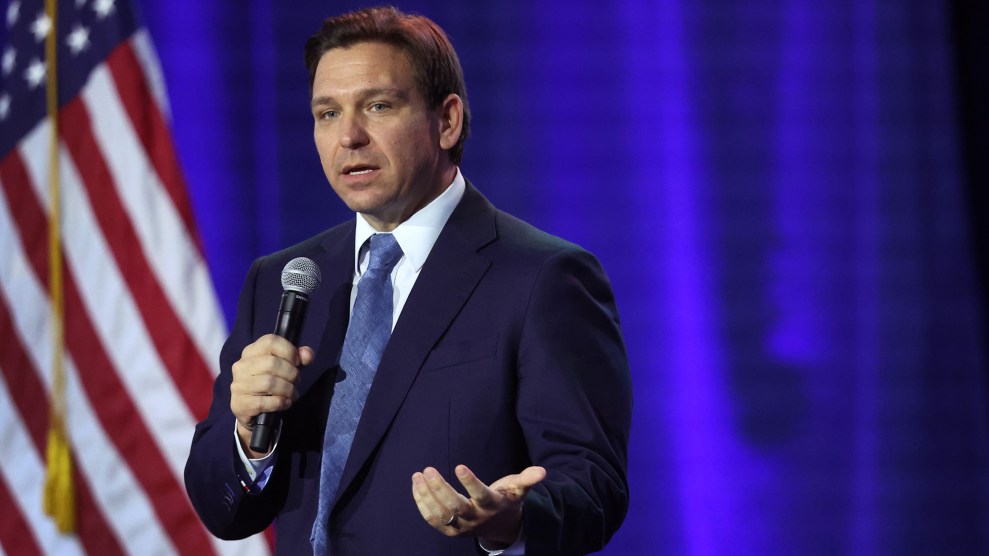
Scott Olson/Getty
Florida’s government is very busy. The GOP-dominated legislature and Gov. Ron DeSantis, a Republican darling considered a top contender for the 2024 presidential nomination, are currently hard at work in a special legislative session, cranking out bills that serve a far-right agenda. On Thursday, for example, they found time to pass a six-week abortion ban.
But since convening in March, they’ve done nothing to prevent a possible looming human catastrophe, as hundreds of thousands of the state’s working poor will lose medical coverage over the next year. With the onset of the coronavirus pandemic in 2020, Congress required states not to boot anyone from Medicaid during the public health emergency and kicked in extra money to cover that cost. That requirement ended on March 31, and the extra funding sunsets at the end of 2023. States now have a year to check enrollees’ eligibility and remove those who no longer qualify. When it’s all over, Florida will be one of the states hardest hit by the wind-down, with upwards of 2 million residents at risk of losing Medicaid over the next year.
It’s “a huge deal,” says Erica Li, a health policy analyst at the Florida Policy Institute. “This is the largest transition in coverage since implementation of the ACA.”
A big part of the reason Florida is in this situation is because it is one of 10 states that declined to expand Medicaid under the 2010 Affordable Care Act, leaving those who make too much money to qualify for Medicaid but too little to receive subsidies to buy insurance on the state’s health care exchange caught in a coverage gap. As Florida shifts away from pandemic-era emergency coverage, it’s unclear how many Floridians will again fall into this gap, and how many will be able to transition to employer-sponsored health care plans or purchase plans on the exchange. Many people departing the program will be ruled ineligible for Medicaid under the state’s usual requirements, which are some of the country’s strictest. For example, an adult with a child only qualifies if they earn less than $7,000 a year. As is the case in a handful of states concentrated in the South, Florida adults who aren’t raising kids are completely ineligible, no matter how little they earn.
Given those restrictions, it’s no surprise that the majority of Medicaid recipients in Florida are children. Indeed, as of August 2022, Medicaid covered three out of every seven kids in the state. Of course, much of DeSantis’ attention-grabbing policy goals are purportedly aimed at protecting children. He wants to protect them from learning about racial inequality, from the true history of the country, from life-saving health care for transgender youth, from drag shows, and even from books about penguins. He even wants to protect embryos, and signed the six-week abortion ban late on Thursday night.
Yet DeSantis and the legislature have done nothing for the unknown number of children about to lose Medicaid coverage. While there is no coverage gap for minors, and children who no longer qualify for Medicaid should be able to transition to other federally-subsidized child health care programs, Alison Yager, executive director of the Florida Health Justice Project, says those handovers could take a month or more. During that time, families with children with chronic health problems will have to float the cost of their medications. Or if a child goes to the emergency room, they will have to hope that they don’t get hit with the bill.
Other kids whose parents don’t realize they’ve lost coverage will take longer to transition to other care. The Department of Children and Families says they haven’t heard back from 850,000 households they contacted in an attempt to collect information that could preserve their coverage. Unless they reestablish contact, they will be removed from the Medicaid rolls, possibly without them even realizing. Because of such situations, Georgetown University’s Center for Children and Families estimates that “the uninsured rate for children could easily double especially in states that do not take adequate time and care with the process, are less adept at using electronic data sources in their Medicaid eligibility system, and/or have more complicated and onerous public coverage features for children.” This describes Florida, where, even under the pandemic-era expansion, more than 300,000 children remained uninsured.
DeSantis and the legislature could address the overall issue by making it easier to qualify for Medicaid or deal with it completely by expanding the program to eliminate the coverage gap. And any Medicaid expansion would mostly be paid for by federal funds. But, like in other GOP-controlled states, Florida Republicans have shown no interest in doing so. In fact, the state’s powerbrokers seem dead set on doing the opposite. “Some of our elected officials are eager to scale back the Medicaid program to what it was before the pandemic,” explains Yager, who points to lawmaker statements backing that goal. “For elected officials who do not support an expansive safety net, this may be seen as an opportunity.”
According to Li, the only step Florida’s leaders seem to have considered is possibly allocating an extra $5.5 million to help staff a call center for people trying to figure out their Medicaid eligibility at the Department of Children and Families, the understaffed agency tasked with purging the rolls. Li says callers can face hours long waits.
As he gears up for an expected presidential run, DeSantis padded his resume this spring by pushing conservative red-meat through the legislature, like one law allowing people to carry concealed guns without a permit. Other bills he hopes to have pass and then sign this spring would make it harder to register to vote, weaken public sector unions, attack media outlets, undermine academic tenure protections, and remove courses from public colleges and universities that explore concepts like white privilege. He plans to criminalize gender-affirming care for minors and even bar teachers from using kids’ preferred pronouns. This all comes on the back of his attention-grabbing legislation that blocked instruction on gender identity and sexuality in kindergarten through third grade—a pending bill will expand the law to eighth grade—and his Stop WOKE Act, which banned discussions of white privilege and affirmative action in schools and workplaces.
DeSantis’ agenda is a striking example of the nationalization of state governance. In recent years, as national politics have come to dominate state and local elections, local concerns have been subsumed in the polarized drama of the moment. In this mold, DeSantis, rather than respond to the actual needs of his constituents on matters like health care, has used his time as governor to garner national media attention with far-right policies that build on national crazes. (He likes to boast about the “free state of Florida” being “where woke goes to die.”) Meanwhile, he’s doing nothing to help the millions of Floridians who will lose their medical coverage, or be forced to spend the next year navigating a difficult transition and an overstressed bureaucracy.
That’s not the price of freedom. It’s the result of politics.

